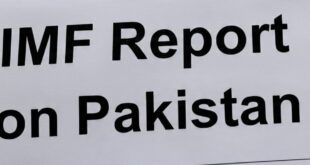
The Ministry of Finance has advertised some of the posts to operationalize the Tax Policy Office (TPO) in response to the IMF’s requirements, taking a significant step forward by advertising key positions for recruitment. The office will see the appointment of a director general alongside five directors.
The Director General will be hired under the Special Professional Pay Scale-1 (SPPS-1), while the roles of Director of Economic Analysis, Director of Business Taxation, Director of Personal Taxation, and Director of International Taxation will be filled under Special Professional Pay Scale-2 (SPPS-2).
To streamline this process, the Ministry of Finance has invited applications for these roles through the National Job Portal, setting April 6 as the deadline. It is noteworthy that the official notification for the establishment of the Tax Policy Office was issued last month.
In a major structural reform, the federal government has now separated tax policymaking from tax collection, restricting the Federal Board of Revenue (FBR) to tax collection alone. The newly created Tax Policy Office is tasked with formulating the government’s reform agenda, analyzing tax policies and recommendations, and directly reporting to the Minister of Finance and Revenue.
To ensure thorough policy evaluation, the office will utilize tools such as data modeling, revenue assessment, and economic forecasting. This initiative is in line with the government’s commitment to the IMF, wherein it pledged to maintain the independence of tax policymaking and tax collection processes.
The Tax Policy Office will play a vital role in preparing policy reports related to income tax, sales tax, and federal excise duty, which will be submitted to the Minister of Finance. Moreover, the office will concentrate on detecting and addressing loopholes that enable tax fraud while enhancing the implementation of tax regulations.
The proposed Tax Policy Office will be established within the Ministry of Finance, with its head being directly accountable to the Minister of Finance.
According to officials, the head of the Tax Policy Office will submit policy reports on income tax, sales tax, and federal excise duty to the Minister of Finance. It has been clarified that the TPO will not function as a separate wing within the Ministry of Finance; instead, it will serve as a think tank dedicated to tax policy formulation.
To ensure that tax policy measures are developed in line with economic considerations, the government plans to engage tax experts, academics, and other professionals. Meanwhile, officials from the Inland Revenue Services will no longer be responsible for proposing tax hikes or implementing tax measures.
Additionally, the authority to impose tariffs and regulatory duties was previously withdrawn from the Customs Department. Since 2019, a specialized cell has been functioning within the Commerce Division for this purpose.
This special cell, directly accountable to the Minister of Commerce, initially operated independently for two years. Rather than focusing on revenue generation, it concentrated on proposing tariff amendments to boost trade, particularly exports.
However, with the government overlooking its recommendations while preparing the fiscal year 2025 budget, the cell has now become largely ineffective.
Finance Minister Muhammad Aurangzeb has underscored the urgent need to strengthen tax enforcement by addressing loopholes that facilitate tax fraud. He stated that the Federal Board of Revenue (FBR) will now prioritize the execution of tax proposals to enhance revenue collection.
The current FBR administration has identified more than Rs 700 billion in uncollected taxes. As a result, instead of imposing new taxes or increasing tax rates, the focus should be on recovering the outstanding dues.
 BeNewz
BeNewz




